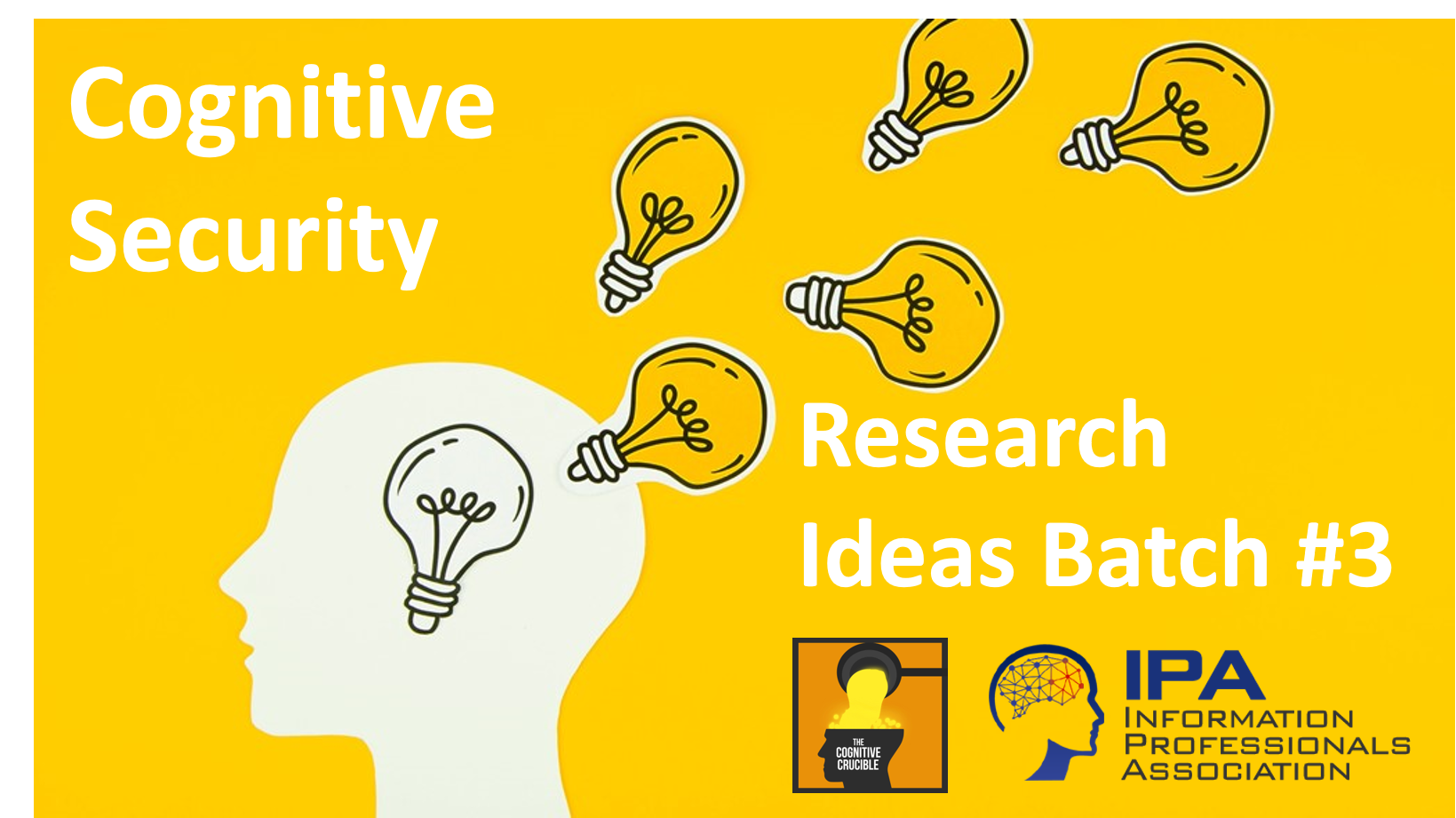Introduction
Part of IPA’s mission is to inspire researchers with compelling and pressing topics which need to be tackled. This is the third installment from Cognitive Crucible podcast guests for information professionals to consider. These topics represent pressing areas of interest related to operations in the information environment. Doctoral, Master’s, and undergraduate college students who are interested in contributing to the body of knowledge can use these ideas and accompanying Cognitive Crucible podcast discussions for inspiration.
FYI, here are the research topic batches:
Batch #3
- Rubens Portugal asks: How dangerous to a country like Brazil or any country for that matter is it to build an information warfare and political warfare capability? For some countries, this is very dangerous. What kind of informational structure is most ideal for countries where the state (permanent, non-political) and government (temporary politics) are not separate in practice? #114 Rubens Portugal on Brazilian Information Operations
- Russ Burgos offers several questions worthy of additional research:
- Is information a domain, an environment, or a thing? What do we mean by information?
- Can information effects be isolated? Ad agents frequently define success with “ad recall;” yet, ad recall is an imperfect measure. For example, it is very possible to have great ad recall without behavioral change.
- Investigate and differentiate market penetration and market effect?
- Where is persuasion theory today?
- How does information processing work inside a person’s head and how is it affected by culture or education?
- See: #115 Russ Burgos on Information Supply, Demand, and Effect
- Matt Jackson observes a difference between entertainment and becoming informed. How do we produce systems which are both entertaining & informing? #116 Matt Jackson on Social Learning and Game Theory
- Sam Wooley asserts that encrypted messaging apps (like WhatApp, Signal, Discord, etc) are becoming more popular, and incubation of disinformation campaigns happens in those spaces. How does disinformation and propaganda spread in encrypted spaces? How will we study propaganda in transport-layer encrypted spaces? #117 Sam Woolley on Journalism, Propaganda, and Ethics
- Joe Kirschbaum asks two questions. First, what’s the right whole of government structure or model that’s appropriate for managing this problem? Plus, how might the information environment be used in a combined arms construct? #118 Joe Kirschbaum on the GAO’s Information Environment Themes
- Katie Carman believes that creative, young minds should explore how to solve the Truth Decay problem. How can we experiment with new ideas in order to use information better? Can we come up with a new way of presenting information that will make it easier for people to identify facts? #119 Katherine Carman on Truth Decay

